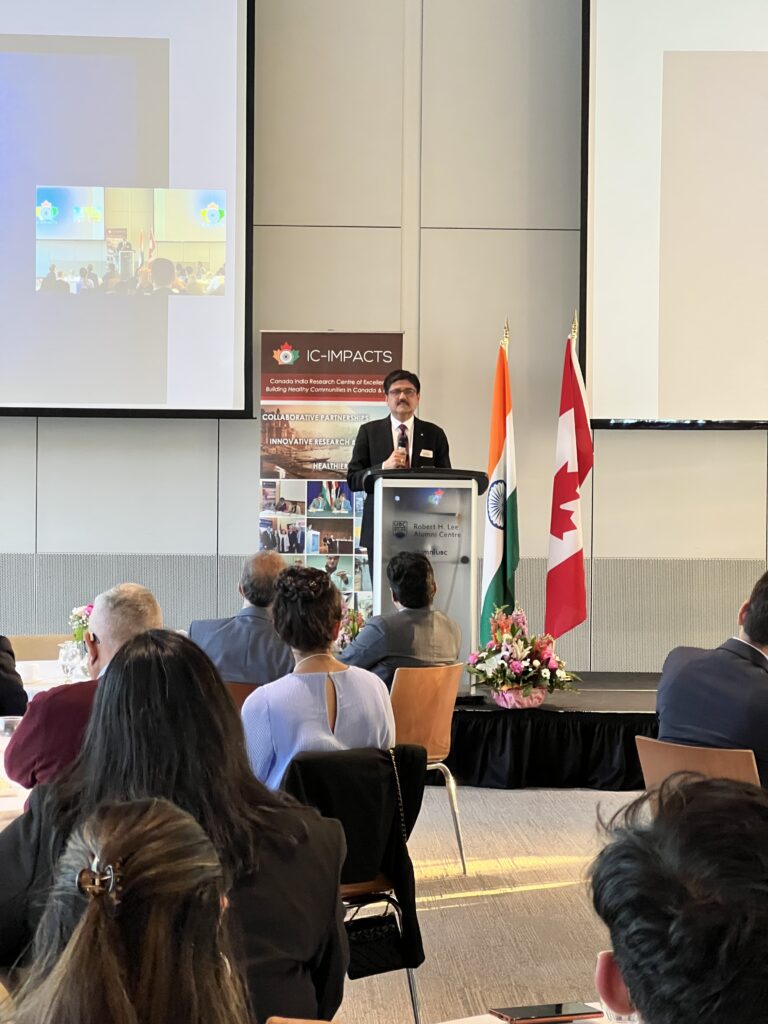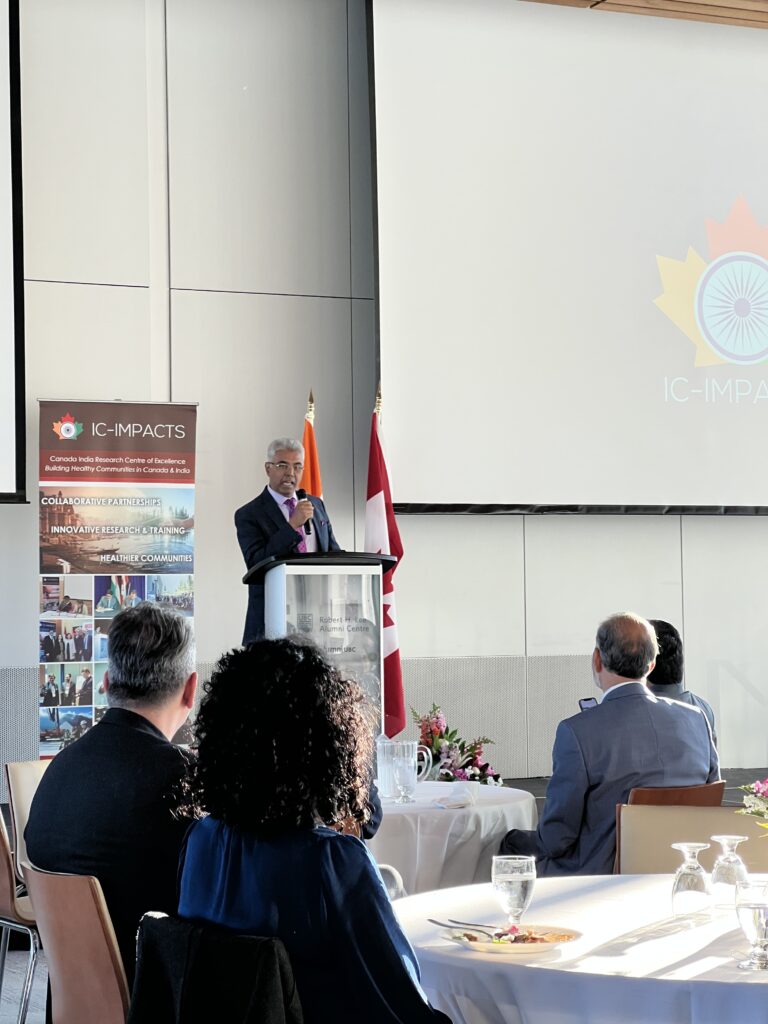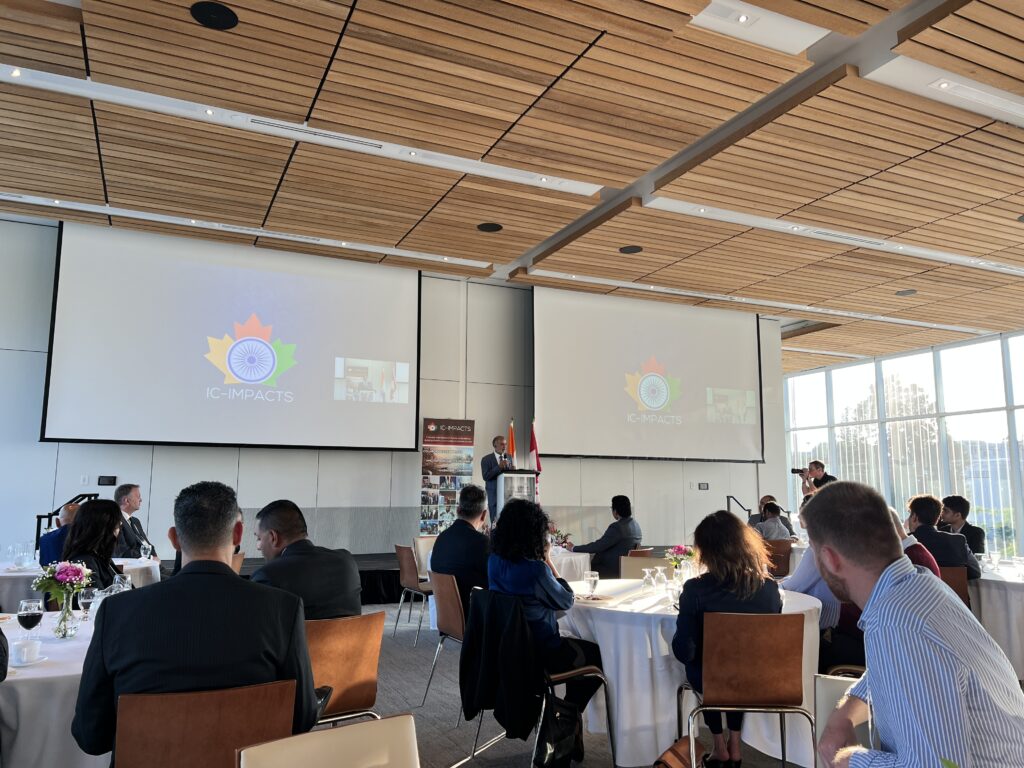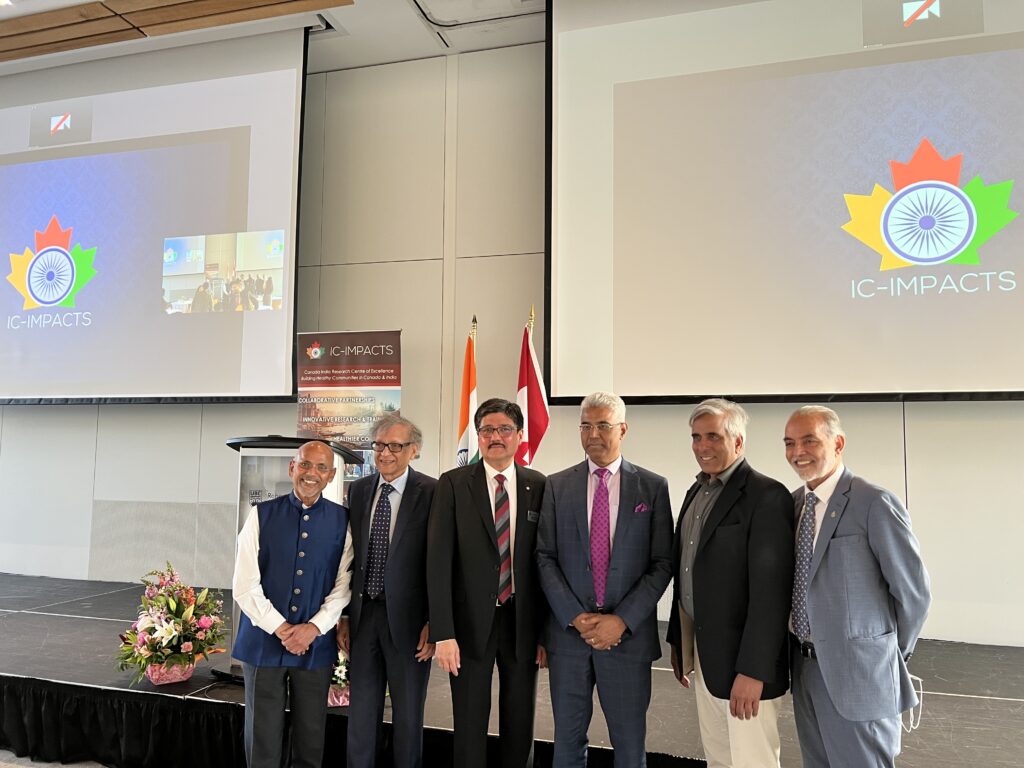Wednesday, June 21, 2023 – Today, the Canada-India Research Centre of Excellence IC-IMPACTS along with India’s Department of Science and Technology (DST) and Department of Biotechnology (DBT) announced $8 million in funding for 19 innovation projects in Food Security, Infrastructure, Water, and Health under their “Building Resilient and Carbon-Neutral Communities Post COVID” initiative. This unique partnership between Canada and India enables cutting-edge research that addresses unique challenges faced by communities in both countries that will result in significant advances in agricultural technologies, food security, biotechnology, pharmaceuticals, water and wastewater management, renewable energy, artificial intelligence, and climate resilient infrastructure.
The synergy between IC-IMPACTS, DST and DBT not only contributes to global scientific progress but also promotes cultural understanding and strengthens diplomatic ties between the two nations.
Cameron MacKay, Canadian High Commissioner to India
Project Highlight: A collaboration between researchers at the University of Manitoba and Thapar Institute of Engineering & Technology in Punjab will strive to address phosphorous scarcity by developing novel techniques for recovering phosphorus from municipal sewage, a critical issue in food security.
The partnership between Indian and Canadian researchers fosters knowledge exchange, innovation, and breakthrough discoveries in various scientific domains. The vast talent pool in India provides Canada with access to highly skilled researchers and professionals, bolstering its scientific workforce.
Mr. Manish, Indian Consul General, Vancouver


Project Highlight: A Canada-India team co-lead by Dr. Abhilash Rakkunedeth Hareendranathan (University of Alberta) and Dr. Mahesh Raveendranatha Panicker (Indian Institute of Technology – Palakkad) will focus on monitoring the long-term impact and comorbidities in COVID affected individuals living in remote communities utilizing a novel Lung Ultrasound (LUS) technology, which is safe and relatively inexpensive.
India and Canada share a vibrant and fruitful relationship across multiple scientific disciplines. The projects we are announcing today validate IC-IMPACTS’s role as a catalyst for leveraging the power of partnerships in bringing advanced technology to communities, in the process creating positive change, fostering sustainable development, social justice, and improve the quality of life in both countries.
Prof. Nemy Banthia, CEO & Scientific Director, IC-IMPACTS


Project Highlight: Researchers at Laval University are collaborating with their counterparts at Indian Institute of Petroleum and Energy (IIPE), Visakhapatnam, to study machine learning methods for water quality estimation and control in water resource recovery facilities.
Project Highlight: Researchers at École de Technologie Supérieure in Montreal collaborating with researchers at Thapar Institute of Engineering and Technology (TIET) in Patiala, will utilize an advanced green cyber physical approach (green-CPS) for remoulding buildings so as to create smart carbon neutral buildings. The project has the potential to develop a standardized system framework that will facilitate the adoption of smart technologies (sensors; IoT) in existing domestic situations; which are user-friendly, cost-effective and capable of being controlled using smartphones. The modular design will allow building owners to choose from simple power measurement and warning systems to completely intelligent IoT-driven full automation.
2024 IC-IMPACTS Conference in Delhi December 9 - 11, 2024 New Delhi, India